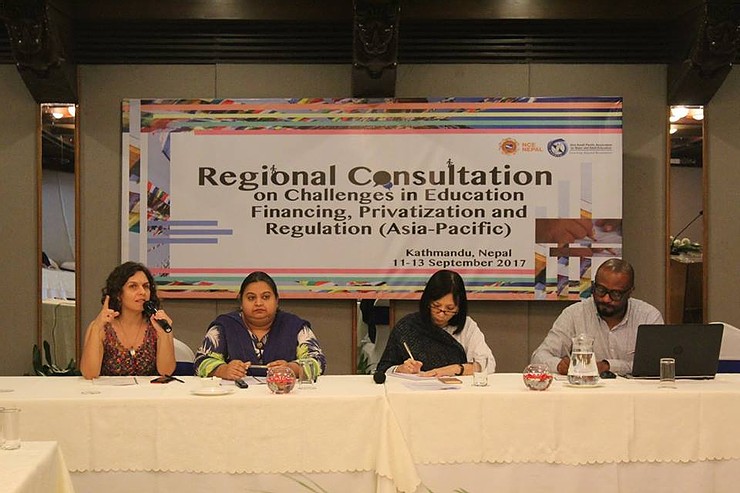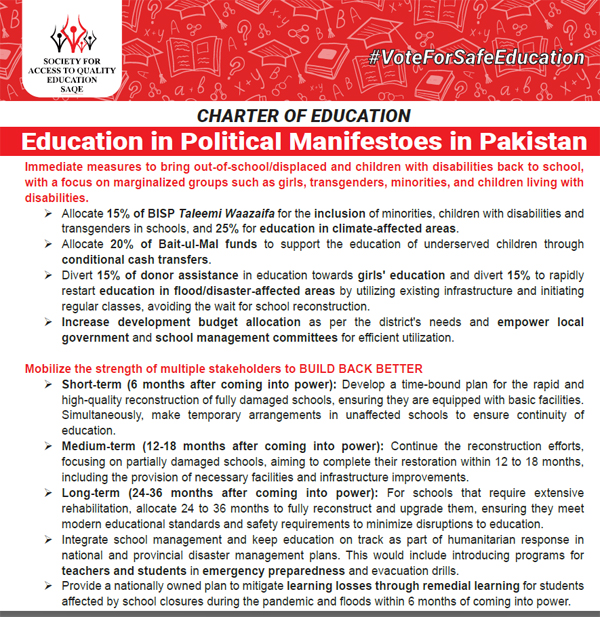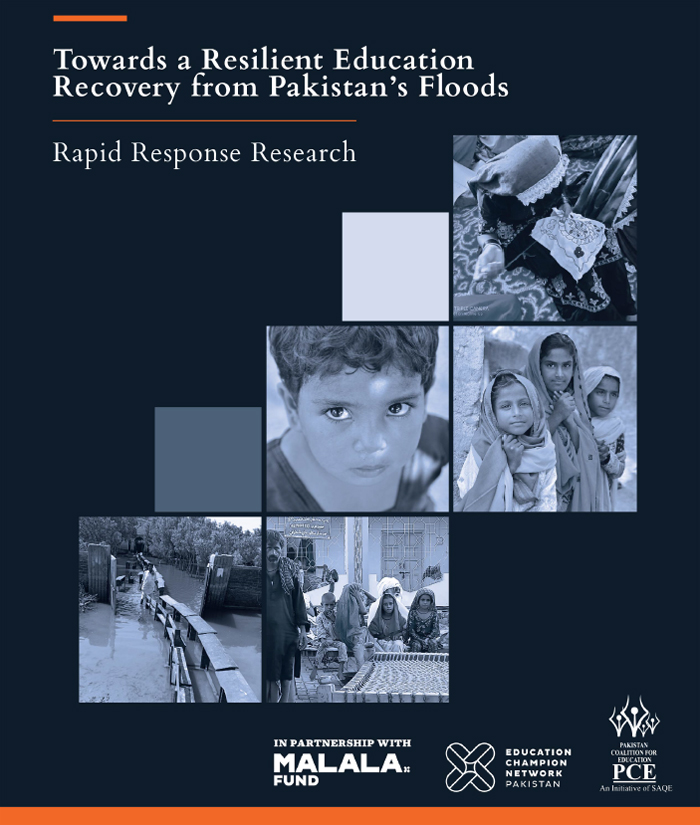Reflection on the comparative trends of privatization and regulation challenges in Asia

September 25, 2020
For the last two years, September is the time when human rights campaigners have been convening as a global consortium to synergize their efforts to counter the privatization of education in their respective regions.
This time, the campaigners headed to Kathmandu where these meetings enabled stakeholders from varied backgrounds working on issues with regards to right to education to raise sizeable concerns around the global growth of private actors in education provision. This event also aided to strengthen the coordination of joint global efforts to respond to these developments in an effective manner.
Additionally, the regional meeting on Privatization of education proved to be a tasteful epilogue to the global meeting on privatization for it was the logical transition for participants to focus their approach to the privatization trends in their countries and plan in detail as a regional group. An emergent theme, on which the Asian region has been specifically working on, was the issue of Public Private Partnerships as one facet of privatization rapidly expanding.
Pakistan is one of the countries in this region which has remarkably seen the expansion of privatization of education in an unprecedented manner. A country where 58 million are under the age of 15 and 21 million children of school going age are out of school, the issue of privatization in education presents a considerable challenge in making quality education accessible for every child. There are multiple reasons why privatization of education has flourished with such vigor in the country. One of the principal reasons is the inadequate financing towards education, which currently stands at a paltry 2.2% of the GDP, falling far short of Pakistan's longstanding target, reiterated by the current federal government, of spending 4% of GDP on education by 2018, the international target of 6% and even more of the National Education Policy (NEP) target of 7%. In 2016, there was an increase of 7-20% allocation in all provinces but this was not targeted against access or quality. In fact, 90% of the allocated budget was for teacher salaries. Privatization education in this situation has been a result of the flailing public education system in which the growth of unregulated private actors in education has resulted in segregating effect in education, leading to systematic violations of the right to education.
In addition to the continued growth of private education, notably of Low Fee Private Schools (LFPS), there are concerns about the weak regulatory mechanisms of private and Public Private Partnership (PPP) arrangements. After the devolution of powers which has placed education as a provincial responsibility, the regulation mechanisms also have to be updated accordingly. However, the prevalence of privatization especially the PPPs in such weak regulatory environment has considerable implications for the implementation of the Right to Education. The UN Committees on the Rights of the Child in 2016 during its review of Pakistan voiced similar concerns when the committee urged Pakistan to:
"Prevent the privatization of schools and establish mechanisms to monitor the compliance of private schools with minimum educational standards, curriculum requirements and qualifications for teachers"
It seems that the regulatory mechanisms or the lack thereof has been a problem specific to Pakistan. During the comparative presentations of regulatory frameworks for the countries of Pakistan, the Philippines, India and Nepal, it was noticeable that each of these countries were on different stages of the path towards privatization. Some had extensive regulatory frameworks around the private sector's involvement in education service delivery such as the Philippines but South Asian countries like India, Pakistan and Nepal had rudimentary laws governing these actors.

A comparative analysis such as this provided an important insight that regardless of the extent of regulations, there was also a need to align the laws according to the principles of inclusivity, and non-segregation as per the international human rights standards.
In Pakistan, the preliminary overview of the regulatory frameworks in the provinces where there has been RTE legislation looks to be inadequate to counter the magnitude and the speed at which the privatization of education is occurring. Despite the focus of some governments at the sub national level to rectify the education challenges faced, the situation has remained to be critical. It is because the interventions and efforts are not accompanied by the necessary governance reforms. Pakistan is one of the countries with the lowest domestic tax incidence and compliance with the less than 50 percent of the budget furnished by domestic tax. In such adverse taxation outlook with a regressive tax regime, there is a need for tax reform which would in turn yield more finances for fulfillment of basic human rights such as education and health in addition to curbing developments which become the tools of segregation in society such as commodification of education.
In essence, privatization of education is not the answer to the country's education crisis; rather it is a symptom of the systemic failure to secure right to education for the country's 58 million children- including the 21 million out of school. As a coalition striving for the Right to Education for all Pakistani children, we ask for effective utilization of education budget targeted against equity in addition to substantive increase.
Echoing the Committee on Economic, Social and Cultural Rights (CESCR) recommendation, the government should arrange for proper systemic evaluation of PPP's from human rights lens in addition to their efficacy before adopting it on a large scale.
Lastly, the public and the private streams of education should not vary in terms of quality so that choosing the either of these schools should truly be a choice rather than a last resort for the parents
About the writer: Nida Mushtaq is a Research Coordinator with the Pakistan Coalition for Education (PCE). She tweets at @nedo9011

